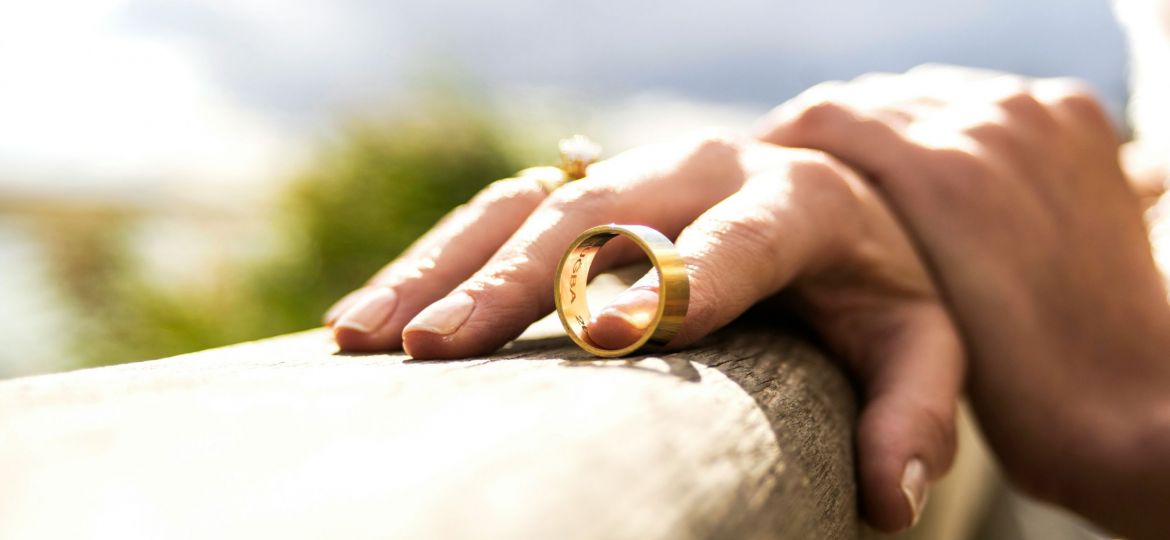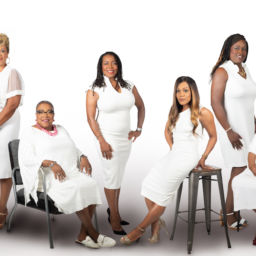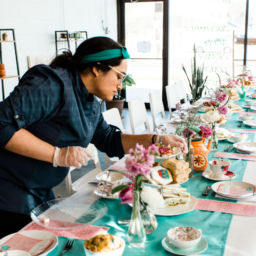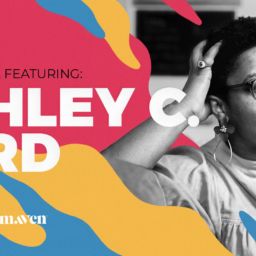
 Editor’s Note: Want to learn from Leah about divorce and other tough life transitions LIVE? Join us at our August Meetup on Thursday, Aug. 14. Register here.
Editor’s Note: Want to learn from Leah about divorce and other tough life transitions LIVE? Join us at our August Meetup on Thursday, Aug. 14. Register here.
After years of guiding women through one of life’s most challenging transitions—and navigating my own divorce—I’ve witnessed countless moments of transformation. I’ve sat with women who felt like their world was ending, only to watch them emerge stronger, more confident, and more aligned with their authentic selves than ever before. If you’re reading this, whether you’re contemplating divorce, in the midst of proceedings, or supporting someone who is, these are the insights I’ve discovered worth sharing:
Prioritize Taking Radical Care of Your Body
Before I became a divorce coach, I practiced as a licensed physical therapist for many years. Even with my extensive training in physiology and physical rehabilitation, I struggled to grasp the extent of stress my body endured during my own divorce. Divorce ranks among the most stressful life changes, and the associated grief is real and complex. You might find yourself mourning not just the relationship that was, but the future you had planned. Some days you’ll feel strong and optimistic; others, you might feel overwhelmed by sadness or anger. I have seen some of the most competent, successful clients unable to perform basic tasks during divorce because stress affects the executive functioning of their brilliant minds. All of this is completely normal. The key is putting your oxygen mask on first: prioritize rest, breath, movement, good nutrition, and anything that helps stabilize your dysregulated system.
Building Your Support Network Is Crucial
Divorce has a way of tricking your brain into believing you’re alone on an island, experiencing something no one else has ever faced. Of course, neither of these feelings reflects reality. You don’t have to navigate this unfamiliar territory alone. Building a strong support network and seeking both personal and professional help—whether legal counsel, financial planning, therapy, divorce coaching, or trusted relationships—is a sign of wisdom, not weakness. Divorce can reveal who your true friends are in surprising ways, and some may withdraw due to their own discomfort. As Mel Robbins wisely advises: “Let them.” Focus on what you can control by actively cultivating relationships with those who believe in your worth and future, including other divorced women, understanding professionals, and non-judgmental friends or family. Consider joining support groups or working with a divorce coach, as connecting with others who’ve walked this path can be invaluable. You don’t have to have all the answers—there are guides and maps available. If you lean into receiving support, you can emerge not just surviving, but truly thriving.
Your Marriage May Have Failed. YOU Are Not a Failure.
The first thing I tell every client is this: your value as a person doesn’t diminish because your marriage is ending. Society often sends subtle (and not-so-subtle) messages that divorced women are somehow incomplete or have failed, but this narrative is not only false—it’s deeply harmful. I’ve worked with brilliant doctors, successful entrepreneurs, devoted mothers, and creative artists who all struggled with shame about their divorce. It’s crucial to understand the difference between shame and guilt: as Brené Brown explains, shame focuses on self (“I am bad”) while guilt focuses on behavior (“I did something bad”). Shame tells us we’re inherently flawed, leading to isolation, while guilt is actually healthy—it’s remorse about specific actions that can motivate positive change. You may feel guilty about certain decisions during divorce, and that’s normal. But shame about who you are as a person has no place in this journey. The courage to recognize when a relationship isn’t serving you comes from self-awareness that helps you distinguish between productive guilt over specific actions and destructive shame about your worth. When you can separate what you’ve done from who you are, you can cultivate your wellbeing from a source of strength rather than shame—not as selfishness, but as self-respect.
The Kids Will Be Okay (And So Will You)
I used to hate the platitude “kids are resilient,” feeling it was a way for adults to avoid accountability for decisions that negatively impact children. But through my own experience and countless stories from others, I’ve discovered a deeper truth: kids are receptive. They absorb everything—the tension, the conflict, the unspoken dynamics we think we’re hiding from them. We worry that divorce will damage our children while often ignoring the harm caused by ongoing conflict, manipulation, and other adult problems that put children in the middle. When we stay in marriages “at all costs,” it’s crucial to examine what those costs actually are and how they’re affecting our kids. I often hear from mothers considering divorce: “What about the kids?” It’s a valid concern that shows their hearts are in the right place, but the more important question is: “How am I modeling healthy relationships, conflict resolution, and boundaries for my children?” If you want your children to grow up taking good care of themselves, they need to see you taking care of yourself. When you prioritize your mental health, pursue your interests, and build a fulfilling life, you’re teaching them that their own happiness matters too. Sometimes the most loving thing you can do for your children is show them what it looks like to choose your own well-being—because the relationship they have with themselves will be the longest one of their lives.
Carry a Big Stick
I don’t think my high school U.S. History teacher knew he was sharing a token I would later use to guide women through divorce, but here we are. Mr. Holmes often quoted Theodore Roosevelt, who said, “Speak softly and carry a big stick; you will go far.” So many women come to me feeling defeated and ready to surrender. You don’t have to go into divorce ready for war—you simply need to defend yourself, know your rights, and understand what you’re entitled to. Knowledge is power, and you have more of it than you realize. Start by gathering financial documents, understanding your family’s assets and debts, and asking questions about anything unclear. Your professionals work for you, not the other way around. And Roosevelt’s “speak softly” part? Perhaps Maggie Kuhn said it best: “Speak your mind, even if your voice shakes.” Practice stating your needs clearly and calmly, because you have a voice in this process. The woman who feels powerless at the beginning of her divorce is rarely the same woman who emerges at the end—because strength isn’t about starting with power, it’s about discovering the power you had all along.
Financial Freedom Starts with Financial Reality
One of the most paralyzing aspects of considering divorce is the fear of financial ruin, and for many women, this fear keeps them trapped in unhappy marriages far longer than necessary. While financial fear post-divorce is often well-founded, financial independence is absolutely achievable with planning and time. Start by taking an honest inventory of your current financial situation—gather all documents related to assets, debts, income, and expenses, even if financial matters have been handled by your spouse. Create a realistic budget for your post-divorce life, factoring in potential changes to income, housing costs, and new expenses like legal fees or childcare. Assess your income-generating skills honestly and consider educational opportunities or career counseling if you need to re-enter the workforce or increase your earning potential. Most importantly, avoid settlements that look good on paper but aren’t sustainable in reality—that beautiful house becomes a burden if you can’t afford its upkeep, property taxes, and maintenance costs. Sometimes downsizing initially allows you to build real financial stability over time, transforming what feels like loss into the foundation for genuine independence. Remember, financial security isn’t about maintaining your current lifestyle at all costs; it’s about creating a sustainable foundation for the life you want to build.
Buy Yourself Flowers
One of the most valuable gifts you can give yourself during and after divorce is learning to genuinely enjoy your own company. Buy yourself flowers, take yourself to dinner, plan solo adventures—date yourself with the same intention you’d bring to dating someone else. It’s uncomfortable at first, but learning the difference between solitude and loneliness will become a key foundation for any future relationships. There’s often pressure to “move on” quickly—to date again, to have everything figured out, to appear like you’re thriving—but resist this pressure. Take the time you need to process your experience and rediscover who you are outside of your marriage, whether that means staying single longer than others expect, exploring career changes, or simply learning to savor your own company again. There’s no timeline you need to follow except your own. The goal is to love the time you have to yourself so much that anyone who wants to share it will have to fight you for it—because when you can sit comfortably alone, you’ve built a relationship with yourself that no one can take away and a foundation strong enough to support whatever comes next.
The Best Is Yet to Come
I know this might be hard to believe right now, especially if you’re in the thick of divorce proceedings or struggling with the immediate aftermath. But I’ve seen it hundreds of times: women who thought their lives were over at 35, 45, or 55, only to create lives more authentic and fulfilling than they ever imagined possible. Your divorce might be the end of one chapter, but it’s also the beginning of another. You get to write that chapter however you want. You get to choose what matters to you, how you want to spend your time, and what kind of relationships you want to cultivate.
The woman reading this has strength she hasn’t even discovered yet. She has dreams that are still valid and goals that are still achievable. Her story isn’t ending—it’s just getting started.
***
Leah GiaQuinta is a passionate divorce transition coach and the founder of Leah GiaQuinta Coaching, LLC. With a specialized focus on empowering women during the often tumultuous experience of divorce, Leah helps clients transform feelings of fear and overwhelm into clarity and confidence.
Through personalized plans and unwavering support, she guides women as they navigate the complex challenges that accompany divorce. Leah’s unique journey, as a licensed physical therapist and former NFL Cheerleader, equips her with the skills to steady, strengthen, and cheer on her clients, ensuring they feel supported every step of the way.
In addition to her professional pursuits, Leah is a devoted mother of four and shares her home with her loyal black lab, Chief. Her distinctive background and empathetic approach make her an invaluable resource for women seeking to reclaim their lives and build a brighter future.
You can find Leah at www.leahgiaquintacoaching.com, on Instagram and Facebook @leahgiaquintacoaching, or schedule a free 30 minute consultation.
SUPPORT LOCAL JOURNALISM
Get the good stuff. Stay in the loop. Subscribe to our weekly newsletter and join 5,500+ savvy locals getting event recs, insider tips, and exclusive content—like our must-have guide to Indy’s summer hidden gems. Sign up here.



















